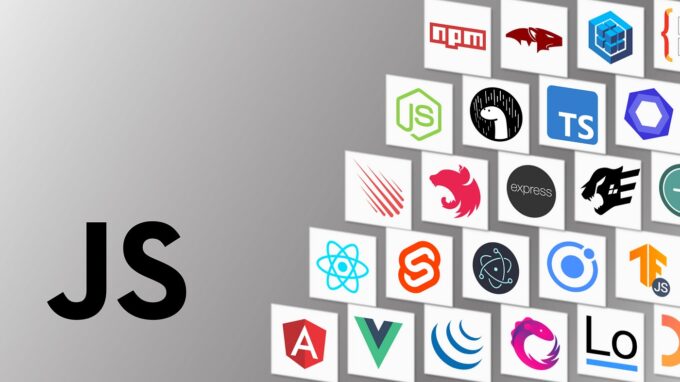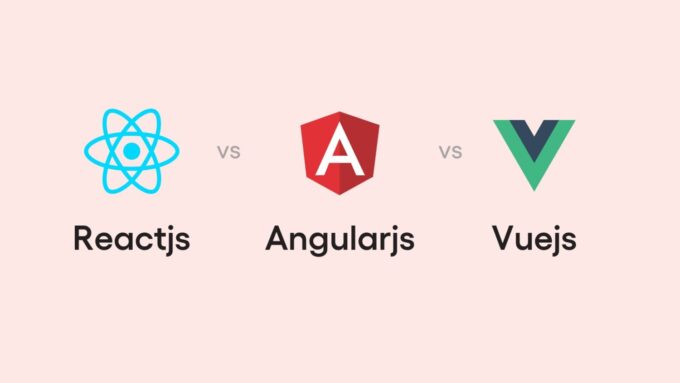Hiring the right JavaScript developers can be challenging, especially for non-technical hiring managers. The JavaScript ecosystem is vast, with numerous libraries and frameworks. To make informed decisions, you need to understand this complex landscape. This blog serves as a guide to hiring remote JavaScript developers, empowering managers with the necessary insights.
Navigating the JavaScript ecosystem can be a daunting task, especially for non-technical hiring managers looking to hire JavaScript developers. This intricate world, bustling with libraries, frameworks, and tools, requires a nuanced understanding to make informed hiring decisions.
This blog aims to unravel the complexities of JavaScript, providing a comprehensive guide to hire remote developers that equips hiring managers with the knowledge needed to identify the right talent for their teams and projects.
Demystifying JavaScript: A Strategic Guide for Effective Hiring

Source: mirzaleka.medium.com
In the quest to hire a JavaScript developer, non-technical hiring managers need to grasp the complexities and nuances of the JavaScript ecosystem. This guide serves as a navigational tool through the diverse landscape of JavaScript, illuminating key areas that impact the effectiveness and suitability of developers for specific web development projects.
1. The Fundamentals of JavaScript
JavaScript is a versatile and powerful programming language that forms the backbone of most modern web applications. Its primary role is to make websites interactive and dynamic, enhancing the user experience. Understanding its core functionalities – like event handling, DOM manipulation, and AJAX calls – is essential.
For hiring managers, recognizing a developer’s proficiency in these fundamental areas is crucial. Statistics show that JavaScript is used by 97.6% of all websites, underlining its dominance in the web development sphere. Evaluating a developer’s grasp of basic JavaScript concepts can be a key indicator of their overall skill level.
2. Frameworks and Libraries: Angular, React, and Vue.js

Source: almabetter.com
JavaScript’s ecosystem is rich with frameworks and libraries like Angular, React, and Vue.js. Each offers unique features and capabilities:
- Angular: A framework by Google, it’s known for its robustness and is often used for complex enterprise-level applications.
- React: Developed by Facebook, it’s a library that allows for building fast and interactive user interfaces.
- Vue.js: A progressive framework, it’s renowned for its simplicity and flexibility.
When aiming to hire a JavaScript developer, understanding which of these technologies aligns with your project needs is pivotal. For instance, React’s popularity has been steadily increasing, with 40.6% of developers preferring it over other frameworks as per Statista 2025 reports.
3. Backend JavaScript: Node.js
Node.js has revolutionized the JavaScript landscape by allowing developers to use JavaScript for server-side scripting. This means they can write scripts server-side to produce dynamic web page content before the page is sent to the user’s web browser.
Hence, when you hire a JavaScript expert skilled in Node.js, you’re getting a professional who can handle both the front-end and back-end of your web applications, which is a significant advantage for full-stack development. Additionally, Nodejs has become a widely used tool for web development with more than 6.3 million websites using it.
4. Modern JavaScript Features and Standards (ES6 and Beyond)
The evolution of JavaScript has seen the introduction of new standards and features, like ECMAScript 6 (ES6) and later versions. These updates have brought significant improvements like arrow functions, template literals, classes, and enhanced object-oriented programming capabilities. They make the code more readable, efficient, and easier to maintain.
For hiring managers, understanding these advancements is key. When you hire JavaScript professionals, assessing their familiarity with the latest ECMAScript standards is crucial. It indicates their commitment to keeping their skills current and their ability to write high-quality, modern JavaScript code. As the language evolves, staying updated with the latest standards is essential for any skilled JavaScript developer.
5. Understanding JavaScript Ecosystem Tools

Source: accreditly.io
The JavaScript ecosystem also includes a variety of tools that enhance development efficiency and code quality. Tools like Webpack for module bundling, Babel for converting newer ES6 code to older versions for compatibility, and various package managers like npm and Yarn are integral to modern JavaScript development.
Knowledge of these tools is a significant asset when you aim to appoint JavaScript developers. They show a developer’s proficiency in managing project dependencies, ensuring code compatibility, and optimizing the performance of web applications. Familiarity with these tools is indicative of a developer who can efficiently navigate the JavaScript ecosystem and contribute to streamlined development processes.
6. Importance of Version Control in JavaScript Development
Version control is an essential aspect of modern software development, including JavaScript projects. Tools like Git are widely used for tracking changes in the source code during development. When you plan to hire a JavaScript developer, their familiarity with version control systems becomes a significant consideration.
Version control proficiency is vital for collaborative development environments. It allows multiple developers to work on the same project without conflict, enables tracking of changes, and helps in maintaining a historical record of the project. A developer skilled in using version control systems can contribute to a more organized and efficient development process.
7. Responsive Design and Cross-Browser Compatibility
In the world of web development, ensuring that websites are responsive and compatible across different browsers is crucial. A proficient JavaScript developer should be skilled in creating web applications that provide a seamless user experience on various devices and browsers.
Responsive design involves using flexible layouts, images, and cascading style sheets (CSS) media queries. Understanding these concepts allows developers to build websites that automatically adjust to the device’s screen size. Additionally, cross-browser compatibility ensures that the website functions correctly across different web browsers, which is essential for reaching a broader audience.
8. The Role of Testing and Debugging in JavaScript

Source: admecindia.co.in
Testing and debugging are critical in the JavaScript development process. They ensure that the code is error-free and performs as expected. When looking to hire JavaScript specialists, evaluating their ability to write testable code and their familiarity with testing frameworks and tools is important.
Developers should be adept at using tools like Jasmine, Mocha, or Jest for testing JavaScript code. They should also have strong debugging skills to quickly identify and fix issues in the code. A developer who emphasizes testing and debugging contributes to the overall quality and reliability of the web application.
Closing Thoughts
For non-technical hiring managers, understanding the JavaScript ecosystem is vital for making informed decisions when looking to hire JavaScript developers. By grasping the essentials of the language, its popular frameworks and libraries, backend capabilities, modern standards, and ecosystem tools, managers can effectively evaluate a developer’s expertise and fit for their projects.
This comprehensive knowledge ensures that the selected candidates are not just technically proficient but are also well-equipped to drive innovation and success in the dynamic world of web development.







